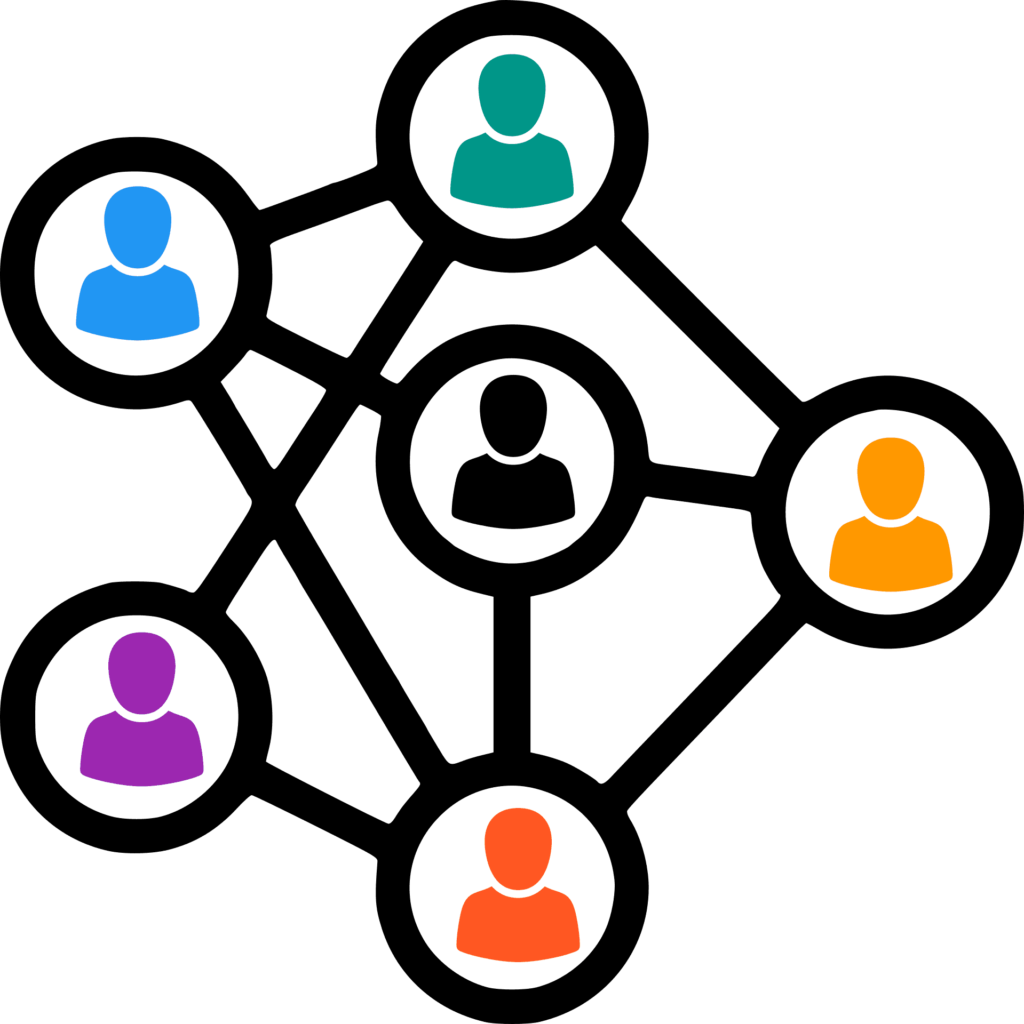Understanding the Importance of Stream Selection After 10th Grade
Choosing the right stream after 10th grade is a pivotal moment in a student’s academic journey. The decision not only shapes their immediate educational experience but also lays the foundation for future career prospects. In this blog post, we will delve into the significance of stream selection, explore different academic pathways, and discuss how to choose subjects wisely to align with future goals.
The Significance of Stream Selection

Stream selection is more than just a transition from one grade to another; it is a critical juncture that can influence a student’s career trajectory. After 10th grade, students typically choose between streams such as Science, Commerce, and Humanities. Each stream offers unique subjects and skills that cater to various interests and career options.
Making an informed choice is essential, as it determines the kind of knowledge and skills a student will acquire in the next few years. It’s not just about immediate academic success; it’s about building a strong foundation for future learning and career opportunities.
Exploring Academic Pathways
Each stream presents distinct academic pathways:
Science Stream: Ideal for students interested in fields such as engineering, medicine, or technology. Subjects typically include Physics, Chemistry, and Mathematics, laying the groundwork for advanced studies in various scientific disciplines.
Commerce Stream: Best suited for those inclined toward business, finance, or economics. Core subjects include Business Studies, Accountancy, and Economics, providing essential knowledge for careers in finance, management, and entrepreneurship.
Humanities Stream: A versatile option for students interested in social sciences, arts, or languages. Subjects may include Psychology, History, and Political Science, opening doors to careers in education, journalism, social work, and more.
Understanding these pathways is crucial. It’s essential for students to consider not only their interests but also their strengths when selecting a stream.
Science Stream Subjects
The Science stream is often the first choice for students who are interested in pursuing careers in fields such as engineering, medicine, or research. Here are some key subjects typically offered in this stream:
Physics: Focuses on the principles governing matter and energy. It forms the foundation for various engineering disciplines.
Chemistry: Explores the composition, structure, and properties of substances, which is essential for careers in pharmaceuticals, environmental science, and more.
Mathematics: Provides analytical and problem-solving skills necessary for fields like engineering, architecture, and data science.
Biology: Essential for students aiming to enter the medical field, covering topics like human anatomy, ecology, and genetics.
Computer Science: An increasingly popular subject that prepares students for careers in technology, software development, and data analysis.
The Science stream offers a robust academic foundation and is ideal for those with a strong inclination toward analytical thinking and problem-solving.
Commerce Stream Benefits
The Commerce stream is geared towards students interested in business, finance, and economics. Here are the primary subjects and benefits of choosing this stream:
Business Studies: Introduces students to the basics of management, entrepreneurship, and organizational behavior.
Accountancy: Essential for understanding financial transactions, preparing financial statements, and managing finances, making it crucial for careers in finance and accounting.
Economics: Provides insights into economic principles, market dynamics, and financial systems, which are vital for careers in banking, finance, and policy-making.
Mathematics: Often included in the curriculum, it helps students develop quantitative skills useful in finance and business analysis.
Benefits of the Commerce stream include:
- Diverse Career Options: Graduates can pursue careers in finance, marketing, accounting, and business management.
- Foundation for Higher Studies: Students can opt for professional courses like Chartered Accountancy (CA), Company Secretary (CS), or Business Administration (BBA).
The Commerce stream is ideal for those who enjoy working with numbers and have an interest in business and financial systems
Arts Stream Opportunities
The Arts stream offers a broad range of subjects and opportunities, appealing to students with creative and analytical inclinations. Here are some common subjects in the Arts stream:
Psychology: Explores human behavior, thought processes, and emotions, paving the way for careers in counseling, therapy, and social work.
History: Provides insights into past events, societies, and cultures, which can lead to careers in education, research, and heritage conservation.
Political Science: Examines political systems, theories, and practices, opening doors to careers in government, law, and international relations.
Literature: Focuses on language, writing, and critical analysis, benefiting those interested in journalism, writing, or teaching.
Fine Arts: Allows students to explore creativity through subjects like painting, music, or theater, leading to careers in the arts and entertainment industry.
Opportunities in the Arts stream include:
- Interdisciplinary Careers: Students can blend their interests with subjects like media studies, graphic design, or cultural studies.
- Higher Education Options: Graduates can pursue degrees in law, social sciences, fine arts, and more.
The Arts stream is perfect for those with a passion for creativity, communication, and critical thinking.
Future Career Prospects

The chosen stream significantly impacts future career prospects. While some professions require specific educational backgrounds, many modern careers value skills over rigid educational pathways. For instance, a student who chooses the Humanities stream can still pursue a career in technology by acquiring relevant skills through certifications and online courses.
Moreover, interdisciplinary careers are on the rise. For example, students from the Commerce stream can excel in digital marketing by learning about data analysis and technology. Thus, while stream selection is important, it’s equally essential for students to remain open to new opportunities and adaptable in a rapidly changing job market.
Choosing Subjects Wisely
Choosing a stream after 10th grade is a significant decision that can shape your educational journey and future career. One of the most effective ways to make this choice is through a thorough assessment of your interests and strengths. Understanding yourself is the foundation for selecting a path that aligns with your goals and aspirations. In this post, we’ll explore self-assessment tools, interest inventory tests, recognizing strengths and weaknesses, and balancing passion with practicality.
Self-Assessment: Reflect on personal interests, strengths, and weaknesses. This self-awareness can guide students toward subjects that will engage and challenge them.
Research Career Options: Investigate potential careers associated with each stream. Understanding what subjects align with various professions can help students make more informed choices.
Seek Guidance: Discuss options with teachers, career counselors, and family members. Their insights can provide valuable perspectives and help students weigh their options.
Consider Future Studies: Think about higher education plans. Some careers require specific subject combinations, so it’s important to align choices with long-term goals.
Stay Flexible: Be open to change. Interests and career aspirations can evolve over time, and it’s important to remain adaptable.
Self-Assessment Tools
Self-assessment tools are invaluable for gaining insights into your personality, preferences, and skills. Here are some effective methods:
Journaling: Keeping a journal to reflect on your daily activities, interests, and feelings can help you identify patterns. Write about subjects you enjoy, hobbies you pursue, and any tasks that energize you.
Self-Reflection: Take time to think about past experiences, including what you enjoyed in school, extracurricular activities, and any challenges you faced. Reflecting on these experiences can reveal insights into your inclinations and capabilities.
Feedback from Others: Sometimes, others can see strengths and interests that you might overlook. Ask friends, family, or teachers for their perspectives on what you excel at or seem passionate about.
Interest Inventory Tests
Interest inventory tests are structured assessments designed to evaluate your interests and suggest potential career paths. Here are a few popular options:
Holland Code (RIASEC): This test categorizes careers based on six interest types—Realistic, Investigative, Artistic, Social, Enterprising, and Conventional. By identifying your primary types, you can explore relevant streams and careers.
Myers-Briggs Type Indicator (MBTI): This personality assessment helps you understand how you perceive the world and make decisions. Knowing your MBTI type can provide insights into suitable career options and study environments.
StrengthsFinder: This tool focuses on identifying your natural talents and strengths, allowing you to build on what you’re already good at, making it easier to choose subjects that align with your abilities.
These tests can serve as a springboard for deeper exploration, guiding you toward streams that resonate with your interests.
Recognizing Strengths and Weaknesses
Understanding your strengths and weaknesses is crucial for making an informed decision. Here’s how to evaluate them effectively:
Skill Assessment: List down subjects or activities you excel in and enjoy. This might include academic subjects, sports, arts, or technical skills. Recognizing what you are good at can guide your choice.
Identifying Weaknesses: Acknowledge areas where you struggle. While it’s important to work on weaknesses, it’s also wise to focus on strengths. Choosing subjects that leverage your skills can lead to greater success and satisfaction.
Consulting Teachers and Mentors: Teachers and mentors can provide valuable insights into your performance in various subjects and suggest areas where you may excel or face challenges.
Passion vs. Practicality
When making a choice about your stream, it’s essential to balance passion with practicality:
Pursuing Passion: Following your passion can lead to a fulfilling career. If you are deeply interested in a subject, you are more likely to excel and remain motivated. For instance, a love for literature might suggest a path in the Arts stream.
Practical Considerations: While passion is important, practicality cannot be ignored. Research job prospects, earning potential, and market demand for careers associated with each stream. It’s crucial to consider whether your passions align with viable career options.
Finding the Middle Ground: Ideally, aim for a balance where you pursue something you love while being mindful of its practicality. For example, a student interested in science could consider fields like environmental science, which combine passion for the subject with growing job opportunities.
Aligning Your Education with Future Aspirations

Career Planning After 10th Grade
Career planning is an essential aspect of the educational journey. After 10th grade, students are often faced with various options, making it crucial to consider potential careers early on. Here are key steps to effective career planning:
Self-Assessment: Start by evaluating your interests, strengths, and weaknesses. Use self-assessment tools and interest inventories to gain insights into what careers may suit you best.
Research Career Options: Explore different fields and industries. Understand the educational requirements, job responsibilities, and potential growth in various professions. Resources like career fairs, workshops, and online platforms can be invaluable.
Set Realistic Goals: Establish short-term and long-term career goals. Short-term goals might include selecting subjects that align with your interests, while long-term goals could involve pursuing specific degrees or certifications.
Aligning Education with Careers
The subjects chosen in higher secondary education should align with future career aspirations. Here’s how to ensure this alignment:
Identify Relevant Subjects: Different careers require different educational backgrounds. For instance, students aiming for careers in engineering should consider selecting Physics and Mathematics, while those interested in business should focus on Commerce subjects like Accountancy and Economics.
Consider Interdisciplinary Options: Some careers blend various fields. For example, a student interested in environmental policy may choose a combination of Science and Humanities subjects, providing a well-rounded perspective.
Stay Informed: The job market is dynamic, and new fields are emerging. Stay updated on industry trends and potential career opportunities to make informed decisions about your stream.
Long-Term Goals Analysis
Analyzing long-term goals is critical in stream selection. Here are steps to effectively analyze these goals:
Visualize Your Future: Imagine where you want to be in 5, 10, or 15 years. Consider your ideal job, work environment, and lifestyle. This visualization can help clarify the direction you want to take.
Set Milestones: Break down your long-term goals into manageable milestones. For example, if you aspire to be a doctor, outline the necessary steps, such as completing a Science stream, attending medical school, and gaining experience through internships.
Evaluate Flexibility: Career aspirations may change over time. Choose a stream that provides flexibility, allowing you to explore different paths as your interests evolve.
Defining Professional Aspirations
To effectively align your education with career goals, it’s essential to clearly define your professional aspirations:
Research Desired Careers: Look into the qualifications and skills required for your dream job. This research can guide your stream selection and subject choices.
Network and Seek Guidance: Talk to professionals in fields of interest. Their experiences can provide valuable insights into the realities of those careers and help refine your aspirations.
Align Values with Goals: Consider your personal values and how they align with your career aspirations. If helping others is important to you, a career in healthcare or education may be a good fit.
Getting Expert Advice on Stream Choices

One of the most effective ways to navigate this decision is by consulting mentors and professionals. They can provide invaluable insights, guidance, and support that help students make informed choices. In this post, we will discuss the importance of mentorship in education, how to seek guidance from teachers and counselors, and the benefits of networking for advice on stream selection.
The Importance of Mentorship in Education
Mentorship plays a crucial role in a student’s educational journey. Here are some key reasons why mentorship is essential:
Guidance and Support: Mentors offer personalized guidance tailored to a student’s interests and strengths. They can help clarify educational and career goals, ensuring students stay on the right path.
Experience and Insight: Experienced mentors can share their own journeys, providing insights into various streams and career paths. This firsthand knowledge can help students avoid common pitfalls and make more informed decisions.
Motivation and Encouragement: A supportive mentor can inspire students to pursue their passions and excel in their chosen fields. Their encouragement can boost confidence and help students overcome challenges.
Skill Development: Mentors often provide advice on developing essential skills such as time management, study techniques, and effective communication, which are vital for academic success and future careers.
Seeking Guidance from Teachers and Counselors
Teachers and counselors are often the first points of contact for students seeking guidance. Here’s how to effectively engage with them:
Be Proactive: Don’t wait for formal meetings—approach teachers and counselors with your questions and concerns. Express your interests and ask for advice on which streams may align with your goals.
Prepare Questions: Before meetings, prepare specific questions related to your options. Inquire about subject requirements for different careers, the relevance of various streams, and any resources they recommend.
Request Feedback: Ask teachers for feedback on your academic performance in subjects you’re considering. Their insights can help you understand your strengths and areas for improvement.
Discuss Future Plans: Share your long-term aspirations with counselors. They can help you map out the educational path required to achieve those goals, including necessary qualifications and courses.
Networking for Advice on Streams

Networking can be a powerful tool in exploring stream choices. Here’s how to leverage your network effectively:
Connect with Alumni: Reach out to older students or graduates from your school. They can provide insights into their experiences with different streams, the challenges they faced, and how their choices impacted their careers.
Attend Workshops and Seminars: Participate in career fairs, workshops, and seminars organized by your school or community. These events often feature professionals from various fields who can share valuable information and answer questions.
Utilize Online Platforms: Leverage social media and professional networking sites like LinkedIn to connect with professionals in fields of interest. Many individuals are willing to share their experiences and offer advice to students.
Join Clubs and Organizations: Engage in clubs or organizations related to your interests. These settings provide opportunities to meet mentors and professionals who can guide you in your stream selection.
Making an informed decision about your academic pathway after 10th grade requires careful consideration and reflection. By following these actionable steps, you can navigate the decision-making process with confidence. Remember, this choice is a stepping stone toward your future, and staying true to your interests and goals will lead you to a fulfilling educational experience. Embrace the journey ahead and look forward to the opportunities that await you!
Author: Samuel Poluri
Date: 13, Oct 2024
To find more information, Click Here!







